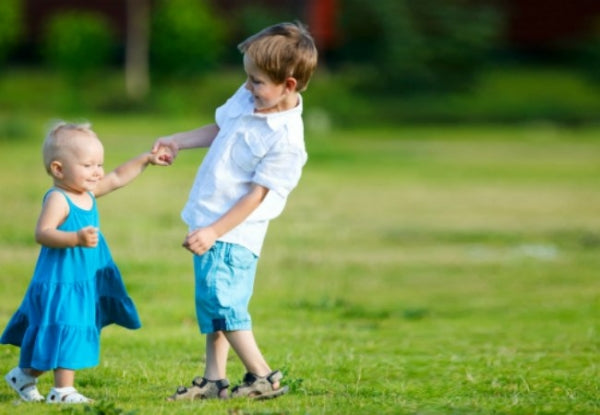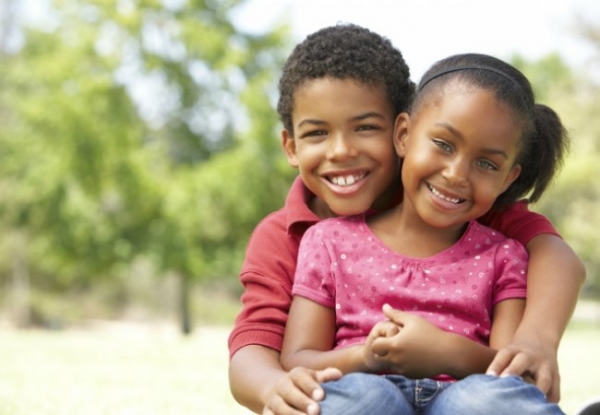How to Foster Healthy Sibling Relationships
As a mom of six kids, I have witnessed my fair share of sibling disagreements. I have also had the pleasure of witnessing the heart-melting moments when siblings stick up for each other, cheer each other on, and generally love being together. While sibling fights are normal, and even healthy, as kids learn to work through disagreements in an appropriate way, most parents want to foster strong sibling relationships that will stand the test of time. Here are some tips to help your kids build healthy, lasting friendships with one another.
Encourage teamwork
Working towards a common goal can help people feel connected and build stronger relationships. This is why companies spend time doing team building exercises with their staff. The same is true in families. Give the kids a project, like cleaning the toy room or freshening up the landscaping in the yard and have them work on it as a team. You can even try making it a competition such as challenging the kids to clean a room faster than their parents. Playing board games or backyard sports with teams can also have the same team building effects.
Have fun together
Spending time together as a family doing things that you enjoy is a simple way to build sibling bonds. Pick something that everyone can participate in such as a bike ride, a movie night, or a fun outing that builds memories and relationships. “My kids love having sleepovers in each other’s rooms each weekend.” says Stephanie Loux, mom of three. “It makes a mess and it’s not always convenient for us as parents, but we love and encourage their excitement for spending time together.”
Healthy conflict
Settling disagreements in a healthy and respectful way is a tool that all of us need to learn to be successful. A sibling is usually the first person in our lives that we disagree with on a regular basis. This gives parents an opportunity to teach kids how to handle conflict. “We teach them to tell each other when they are hurting emotionally or physically.” says Abby Vanden Hull, mom of four. “In the beginning that means helping them find the words and talk to each other kindly. It also means stepping back and letting them sort out their problems whenever possible.” Teach your kids to listen, take turns speaking, use kind words,refrain from criticism or physical violence, and come to a compromise whenever possible. These skills will serve them well in all areas of their lives.
Do not compare
As parents, it can be difficult not to compare children. Each child has their own unique gifts to foster and challenges to face as they grow. Try to focus on acknowledging and appreciating their gifts and encouraging everyone in the family to do so. When they are struggling with behaviors that other kids may not have found challenging, be patient and help them work through it as a family. When kids feel like their parents are comparing them, it can cause jealousy, competition, and resentment.. Alternatively, when they feel like their gifts are cultivated and appreciated they feel loved, valued, and secure. It also helps kids to understand that all of us are different and that is okay.

The importance of family
Our siblings are our first friends. They have a unique perspective and relationship to us because they have experienced nearly everything we have during childhood. This often leads to a relationship that includes deep understanding and support for challenges we may face in the future. This concept is difficult to explain to small children, however the importance of family is something that can be shown through actions rather than explained using words. Do you have a good relationship with your own siblings? Do you support them in times of need and enjoy spending time with them? Your kids will notice. Over time, they will realize that there is nothing like a sibling who is also a friend.
source: creativechild


